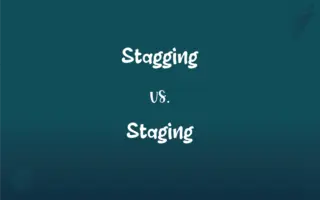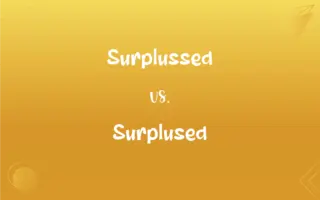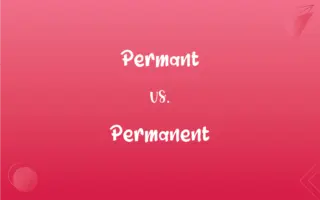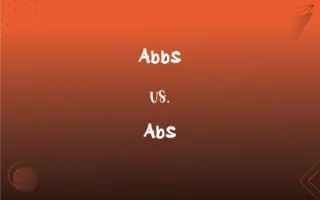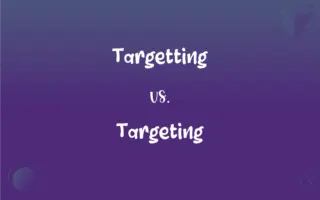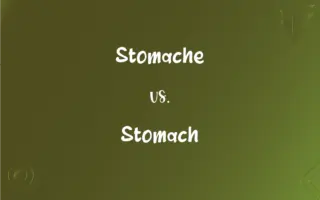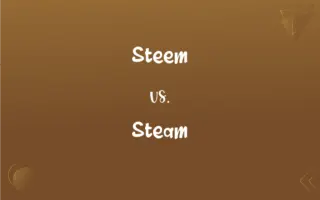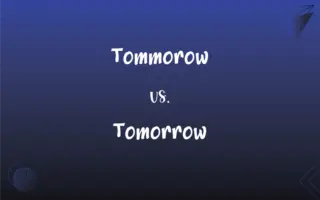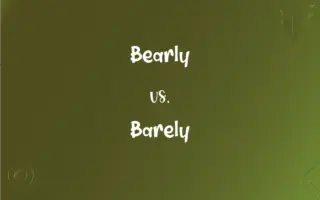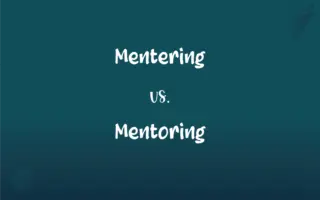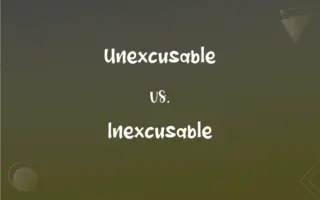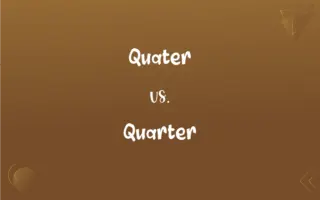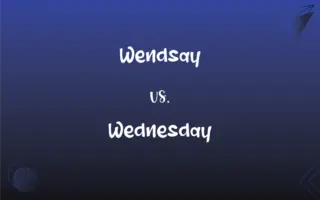Newely vs. Newly: Mastering the Correct Spelling
Edited by Aimie Carlson || By Janet White || Updated on March 13, 2024
Newely is an incorrect spelling. The correct spelling is Newly, which means recently or just now.

Which is correct: Newely or Newly
How to spell Newly?

Newely is Incorrect

Newly is Correct
ADVERTISEMENT
Key Differences
Think of "new" and simply add “-ly”.
Associate it with "newlyweds", a commonly used term.
Rhyme it with "jewelry" to remember the single "e".
Remember, only one "e" is needed after "w".
Recall "new" and the common adverbial suffix “-ly”.
ADVERTISEMENT
Correct usage of Newly
She was newely appointed to the board.
She was newly appointed to the board.
The book is newely released this week.
The book is newly released this week.
They are newely engaged and very happy.
They are newly engaged and very happy.
The newely painted walls brightened the room.
The newly painted walls brightened the room.
He is newely arrived in the city.
He is newly arrived in the city.
Newly Definitions
Newly means in a new or different manner.
The room was newly painted.
Newly indicates a recent time or occurrence.
They are newly acquainted.
Newly suggests being fresh or different from the former.
Newly sprouted leaves glistened in the sun.
Newly refers to a state of recent existence or appearance.
The newly opened store was bustling with customers.
Newly can describe a fresh start or beginning.
The artist newly embarked on her journey.
Not long ago; recently
Newly baked bread.
Once more; anew
A newly painted room.
In a new or different way; freshly
An old idea newly phrased.
Very recently/lately; in the immediate past.
She smelled the newly budding flowers.
Lately; recently.
He rubbed it o'er with newly gathered mint.
Anew; afresh; freshly.
And the refined mind doth newly fashionInto a fairer form.
Very recently;
They are newly married
Newly raised objections
A newly arranged hairdo
Grass new washed by the rain
A freshly cleaned floor
We are fresh out of tomatoes
Newly Sentences
I'm newly committed to a healthier lifestyle.
The newly installed software will make our work much easier.
She was newly elected as the president of the club.
The newly renovated kitchen looks amazing.
Their newly formed friendship became quickly evident to everyone.
He's newly returned from a trip abroad.
The newly designed website is much easier to navigate.
The newly discovered species of bird is fascinating.
The newly launched product has been a huge success.
The newly planted trees will provide shade in a few years.
The newly hired employees start next Monday.
A newly minted coin shines brightly.
She felt newly inspired after attending the conference.
The newly constructed bridge reduces travel time significantly.
The newly set goals were ambitious but achievable.
The newly paved road made the commute smoother.
Their newly found confidence was noticeable.
The band's newly released album is their best yet.
He's newly awakened to the realities of the situation.
The newly established rule was immediately effective.
FAQs
What is the verb form of Newly?
Newly is an adverb derived from the adjective "new". The verb form related to "new" is "renew".
What is the pronunciation of Newly?
Newly is pronounced as /ˈnuːli/.
Which vowel is used before Newly?
The vowel "e" is used before "w" in Newly.
Which conjunction is used with Newly?
Any conjunction can be used with "newly" as appropriate to the sentence, e.g., "and", "but", "or".
Which article is used with Newly?
As an adverb, "newly" typically doesn't use an article directly. However, in context: "a newly renovated house".
Is Newly a negative or positive word?
It is neutral; the connotation depends on the context.
Why is it called Newly?
It's called "Newly" because it derives from the adjective "new", indicating something recent, with the adverbial suffix "-ly".
What is the plural form of Newly?
Adverbs don't have plural forms, so Newly doesn't either.
What is the root word of Newly?
The root word of Newly is "new".
Is Newly a vowel or consonant?
"Newly" is a word, not a single letter, so it contains both vowels and consonants.
Which preposition is used with Newly?
This varies by context. For instance, "newly in" a position, "newly on" the market.
Is Newly an adverb?
Yes, Newly is an adverb.
Is the Newly term a metaphor?
Not inherently, but it can be used metaphorically in specific contexts.
How many syllables are in Newly?
Newly has two syllables.
What is the first form of Newly?
Newly is an adverb and doesn't have verb forms.
What is the singular form of Newly?
Newly is an adverb and doesn't have a singular form.
How do we divide Newly into syllables?
New-ly.
What is the second form of Newly?
Newly doesn't have verb forms as it's an adverb.
Is Newly an abstract noun?
No, Newly is not an abstract noun.
Is the word Newly imperative?
No, Newly is not imperative; it's an adverb.
What is the opposite of Newly?
Long ago or oldly (though "oldly" is not commonly used).
What is the third form of Newly?
Newly is an adverb and doesn't have verb forms.
Is Newly a countable noun?
No, Newly is an adverb and not countable.
Is Newly a collective noun?
No, Newly is an adverb.
What part of speech is Newly?
Newly is an adverb.
Which determiner is used with Newly?
Determiners aren't typically used directly with adverbs, but in context: "the newly appointed manager".
Is Newly a noun or adjective?
Newly is an adverb.
What is a stressed syllable in Newly?
The first syllable "new" is stressed.
What is another term for Newly?
Recently.
How is Newly used in a sentence?
She was newly appointed as the director of the department.
About Author
Written by
Janet WhiteJanet White has been an esteemed writer and blogger for Difference Wiki. Holding a Master's degree in Science and Medical Journalism from the prestigious Boston University, she has consistently demonstrated her expertise and passion for her field. When she's not immersed in her work, Janet relishes her time exercising, delving into a good book, and cherishing moments with friends and family.
Edited by
Aimie CarlsonAimie Carlson, holding a master's degree in English literature, is a fervent English language enthusiast. She lends her writing talents to Difference Wiki, a prominent website that specializes in comparisons, offering readers insightful analyses that both captivate and inform.


